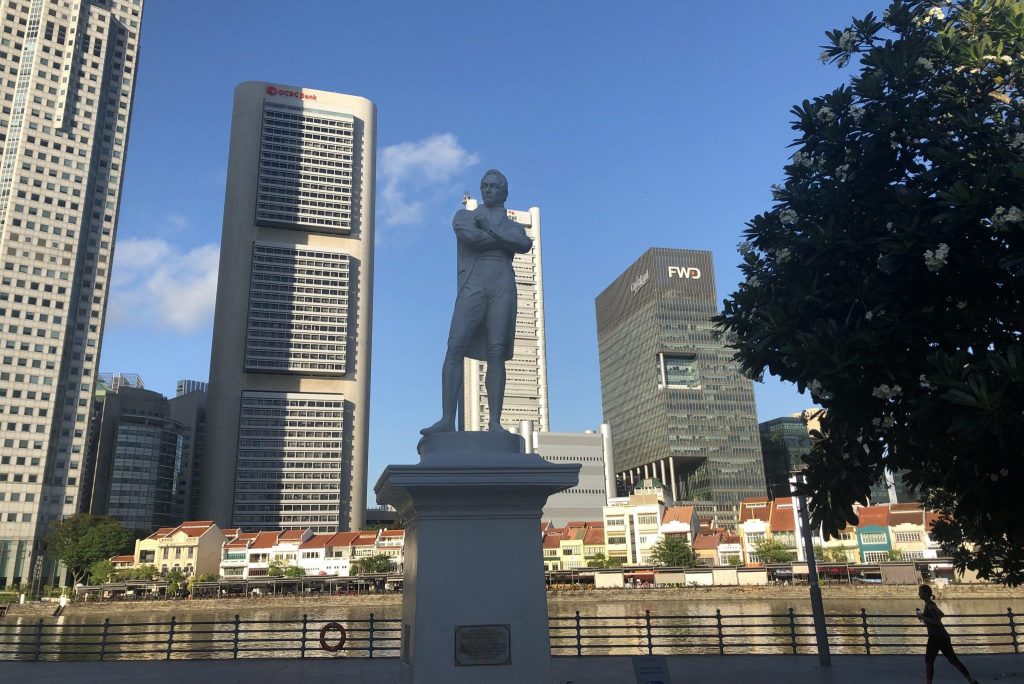Skift Take
Anyone who says Covid-19 will finally do what the internet hasn't quite done — that is, sunset the travel agency — is speaking too soon. Singapore, where logically agents are least needed, isn't seeing massive closures so far, thanks to a government that recognizes their expertise, rather than a bot's.
For more than two decades, traditional travel agencies have been able to defy widely-held expectations they wouldn’t survive the disruption brought about by online travel agencies and peer-to-peer review platforms.
The pandemic, however, has the ingredients to potentially sunset the sector.
In Southeast Asia, Covid-19 has accelerated digitization by one or two years, with 40 million first-time internet users browsing and buying online recorded this year. This brings to 400 million people, or 70 percent of the population in the Philippines, Indonesia, Vietnam, Thailand, Malaysia and Singapore, that are connected online.
Covid-19 has also put paid to an old argument that agents will always survive because there’s a perpetual swell of first-time travelers who need them. Alas, international travelers visiting Asia who require the destination knowledge and services of inbound specialists aren’t able to arrive. Asian tourists, even first-timers, do not need the services of outbound agencies since travel is virtually domestic and locals know the backyard well.
New Skift Research on Hotel Distribution 2020 suggests that Covid-19 has bolstered direct hotel bookings and online travel agency bookings at the expense of wholesalers.
Yet, a fresh verdict that the pandemic will surely wipe out travel agents is still premature. Interestingly, it’s the Asian country where travel agents are arguably the least needed, Singapore, that is showing that many of its agencies may survive tourism’s worst-ever crisis.
Predictable
Technically, foreign tourists can navigate Singapore on their own. It’s a small city-state that’s easy to get around with a reliable transportation network and helpful locals who are multilingual in English, Mandarin, Malay and Tamil.
Singapore also prides itself as “safe and clean” long before Covid-19 make those attributes the highest travel values.
The city has more than 1,200 travel agents, inbound and outbound. Strong arrivals growth year-on-year reaching 19.1 million in 2019 ensures a regeneration of inbound agents each year — laggards were replaced by more imaginative newcomers in providing experiences. Same goes for outbound. Singapore’s population may be small, 5.9 million people or a third of inbound arrivals — but have they got the travel bug. This keeps the number of outbound agents fairly consistent.
One would have thought that the pandemic would shake up the predictability. Instead, a check with the Singapore Tourism Board, which licenses travel agencies, shows that fewer travel agents called it a day between February 1 and November 3 this year than in the same period in 2019, 29 versus 49.
Of the 29 cessations, 19 said their exit was a result of Covid-19, while the rest cited reasons such as change in business focus and retirement.
“The rate of business exits has also remained fairly consistent. An average of 120 to 140 travel agents cease their license voluntarily every year for various reasons such as change in business focus and retirement,” said the Kenneth Lim, the board’s director, travel agent & tourist guides.
Support
A key reason why agents in Singapore are still able to hang on to their business is support from government. This includes a temporary bridging loan program, wage support for local employees, waiver of license fees due for renewal this year, and reduced minimum financial requirement for agents holding a general or niche license by 90 per cent, to S$10,000 ($7,454) and $5,000, respectively, for the period April 8 to December 31.
“Without the job support scheme, most inbound companies, including ours, won’t be able to retain staff and operate and innovate,” said Yvonne Low, executive director of The Traveller DMC.
“STB [Singapore Tourism Board] is also proactive, holding regular engagements with the travel trade and maintaining deep conversations about moving forward.

Yvonne Low, executive director of The Traveller DMC, tests a tea experience at Sunny Hills, Singapore.
“There are many opportunities for us to upskill. I personally signed up for a course with SMU [Singapore Management University] on understanding the value and Importance of customer data, which opened my mind to see the need to change our business model.”
While waiting for international arrivals to return, Low keeps overseas partners engaged via Zoom meetings, creates new content and improves processes. Given the lighter workload, she launched an online brand, Origin Journeys, for domestic travelers. Aside from a much-needed new revenue stream, the platform forces the inbound agency to dig deeper into the destination since domestic travelers know it well. This also builds better content for international visitors later.
“We will focus our efforts on growing Origin Journeys in Singapore in the near future and begin marketing [the products] to international tourists once borders open. Our goal is to expand Origin Journeys to other Southeast Asian countries when the time is right. It will feature staycations and previously uncovered authentic experiences in each country that will cater to both locals and international travelers eventually,” said Low, who also operates in Malaysia.
Crunch
But the crunch will come when schemes such as jobs support thin out. The government, which co-funds 25 percent of the first S$4,600 gross monthly wages per local worker for nine months till December, is extending the scheme is by up to seven months, but at lower support levels.
But Lim believes agents in Singapore will persevere. “Travel agents have been able to sell more products and experiences for the domestic market following the gradual re-opening of tourism businesses in July,” he said. This includes cruise sailings, and packaged staycation and tour deals for locals.
He also observed that agents are reinventing their business models, citing The Traveller DMC and Nam No DMC as examples. “Nam Ho started offering logistics services as an alternative revenue source, leveraging its existing fleet of vehicles and employees. It has since developed this into a full-fledged logistics business arm known as Nam Ho Logistics,” said Lim.
He noted a “healthy” uptake in travel agents for the board’s Business Improvement Fund, launched several years ago to encourage technology adoption and redesign of business models in tourism.
New Arguments
There are new arguments why agents are needed. Before Covid-19, a good one was if something went wrong with the trip, you could speak to your agent, not a bot.
Today, agents play a critical role in helping clients navigate a myriad of safety requirements and health regulations surrounding safe travel and border controls, said Lim.
“Their expertise is more important than ever in putting together itineraries that are both safe and enjoyable,” he said.
For Amadeus, which just released a report, The Travel Consultant of Tomorrow, having real-time data and travel technology is ever more critical for agents to deal with massive reschedules and cancellations of tickets while providing personalized customer service.
It recommends agencies to adopt AI and smart technology, and to re-skill staff.
“As technical skills become highly valued to travel agency businesses, travel consultants will need to have greater understanding of coding for their website and apps, analyzing traveler data for risk management and planning, and digital marketing to connect with online consumers. Social media skills training should be conducted for all customer-facing teams, not just the marketing department,” said the report.
However, the challenge that agencies said they faced was a struggle to find people with the right technical skills to build, implement and manage new technology, alongside uniquely human abilities such as creative thinking and problem solving.
Moreover, the report, based on a survey of agencies in the last quarter of 2019, shows not even half (46 percent) of their leaders would invest in automation in the next five years, followed by dynamic pricing (35 percent) and mobile strategy (35 percent).
“Covid-19 will likely delay some major technology investments by 12-18 months, if not cancel some expensive projects. At the same time, some investment will prove useful to deal with the situation we’re currently in, such as mobile channels and automation. Agencies who can accelerate these investments will be well positioned for this new world,” said Sebastien Gibergues, vice president, online travel, APAC at Amadeus.
The travel agents of tomorrow will also prioritize the quality of a trip versus quantity, said Ramona Bohwongprasert, Amadeus senior vice president for retail travel channels, Asia-Pacific.
“Trust is the new currency of travel, which means that focusing on strengthening your brand and prioritizing technology investments such as omni-channel, having great and competitive content all in one screen, and providing excellent consultancy and servicing will help ensure success in the future.”
Covid-19 may have just made travel agencies more valuable than before.
The Daily Newsletter
Our daily coverage of the global travel industry. Written by editors and analysts from across Skift’s brands.
Have a confidential tip for Skift? Get in touch
Tags: singapore, travel agents
Photo credit: Singapore riverside: The country's travel agencies fighting hard to stand tall. Raini Hamdi
